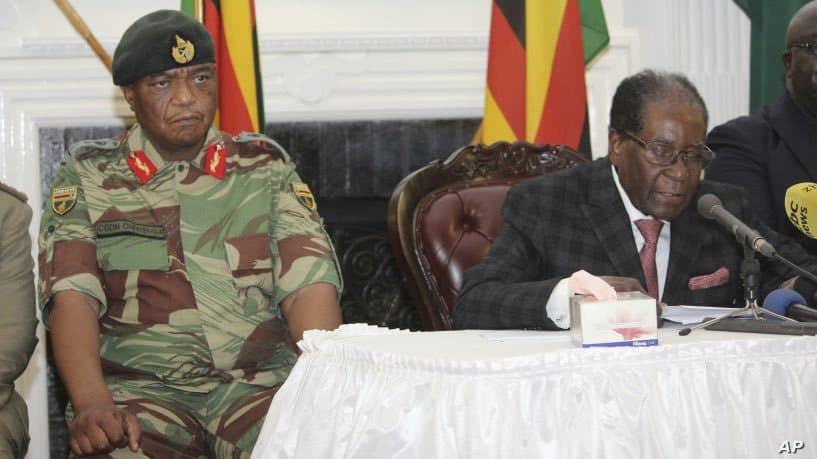Allegedly, President Emmerson Mnangagwa, his deputy Constantino Chiwenga, or their associates and relatives were reported to have received a sum of US$3 million from Zunaid Moti, a controversial South African businessman, during the 2017 coup that resulted in the removal of the late Robert Mugabe from power.
Zunaid Moti has significant business interests in Zimbabwe and had been awarded contentious contracts towards the end of Mugabe’s rule. The situation also involves a Supreme Court justice who allegedly received payment to legitimize the 2017 coup that brought Mnangagwa to the presidency.
According to confidential documents obtained by The Sentry, an investigative and policy organization based in the United States, Zunaid Moti, the founder of African Chrome Fields (ACF), potentially transferred up to US$130 million to the accounts of 28 companies and four individuals in Zimbabwe from 2017. Some of these transactions occurred during the ongoing November 2017 coup, raising suspicions that Moti might have provided financial support to the insurrection in order to gain favor with the prospective new rulers of the country.
The Sentry further asserts that certain records of the companies that received funds from Moti’s Spincash Investments and ACF are now missing from the companies registry in Harare, fueling concerns about the transparency and legitimacy of these transactions.
Previous reports by the Zimbabwe Independent, a sister paper, indicated that numerous corporate documents belonging to the Moti Group were allegedly taken by a South African executive named Clinton van Niekerk. Consequently, legal battles have ensued in both South Africa and Zimbabwe to secure their return.
The leaked internal documents obtained by The Sentry reveal the close connections between Zunaid Moti and high-ranking politicians in Zimbabwe. They expose evidence of questionable multimillion-dollar transactions and a sustained effort by Moti to accumulate political influence.
In July 2018, Mnangagwa officially inaugurated ACF’s aluminothermic plant in Kwekwe, which has a capacity to produce up to 12,000 tonnes of low sulfur, high-grade ferrochrome annually without relying on electricity. Additionally, the Moti Group is currently in negotiations with an unnamed Chinese company for a venture based on their lithium concession in Zimbabwe. This venture could potentially lead to the establishment of a battery factory costing over US$1 billion.
By 2015, ACF had reportedly become well-connected, having formed a joint venture with the Zimbabwe Defense Forces (ZDF) and employing Mnangagwa’s son as a consultant.
One of Chiwenga’s “investment managers,” who indirectly owned shares in ACF through Spincash Investments, allegedly had ties to Moti’s businesses. Moti’s companies purportedly made payments totaling $130 million in 595 installments to various entities in Zimbabwe, including established firms, companies with missing records, and politically-linked organizations.
Specifically, in December 2017 and January 2018, these payments allegedly included $1 million to Mnangagwa’s farm and $2 million to a company controlled by Chiwenga’s investment manager, as well as an individual reported to be the retired general’s niece.
In a separate commercial transaction in February 2018, ACF supposedly paid $100,000 to Justice George Chiweshe as part of a broader agreement to mine chrome in concession areas controlled by a company he chaired.
The timing of the deal in November 2017 raises questions about its potential connection to the coup, as it coincided with significant political developments. Following factional infighting within the Zimbabwe African National Union — Patriotic Front (Zanu PF) throughout the year, Mnangagwa fled Zimbabwe after being dismissed as Vice-President by President Robert Mugabe on November 6, 2017.
source: news day













